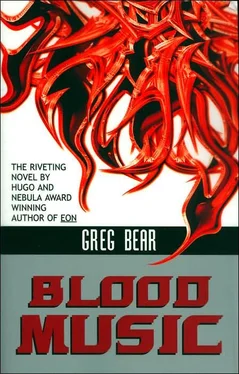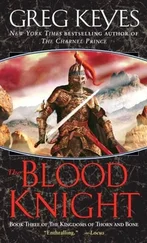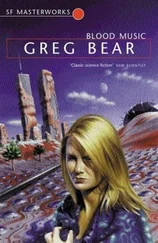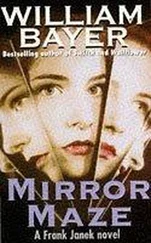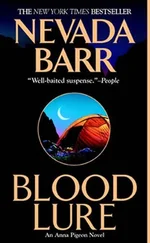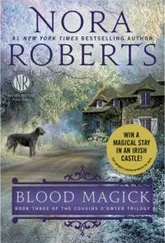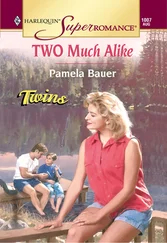Gregory Bear - Blood Music
Здесь есть возможность читать онлайн «Gregory Bear - Blood Music» весь текст электронной книги совершенно бесплатно (целиком полную версию без сокращений). В некоторых случаях можно слушать аудио, скачать через торрент в формате fb2 и присутствует краткое содержание. Город: New York, Год выпуска: 2005, ISBN: 2005, Издательство: ibooks, Incorporated, Жанр: Фантастика и фэнтези, на английском языке. Описание произведения, (предисловие) а так же отзывы посетителей доступны на портале библиотеки ЛибКат.
- Название:Blood Music
- Автор:
- Издательство:ibooks, Incorporated
- Жанр:
- Год:2005
- Город:New York
- ISBN:1596871067
- Рейтинг книги:4 / 5. Голосов: 1
-
Избранное:Добавить в избранное
- Отзывы:
-
Ваша оценка:
- 80
- 1
- 2
- 3
- 4
- 5
Blood Music: краткое содержание, описание и аннотация
Предлагаем к чтению аннотацию, описание, краткое содержание или предисловие (зависит от того, что написал сам автор книги «Blood Music»). Если вы не нашли необходимую информацию о книге — напишите в комментариях, мы постараемся отыскать её.
Blood Music — читать онлайн бесплатно полную книгу (весь текст) целиком
Ниже представлен текст книги, разбитый по страницам. Система сохранения места последней прочитанной страницы, позволяет с удобством читать онлайн бесплатно книгу «Blood Music», без необходимости каждый раз заново искать на чём Вы остановились. Поставьте закладку, и сможете в любой момент перейти на страницу, на которой закончили чтение.
Интервал:
Закладка:
He brought his leg around’ behind her and tripped her. She fell back on her ass with a shriek. Legs sprawled, hands spread on stiff arms behind her, she looked up at him with lips writhing. “You—”
“Brute,” he said. “Calm, cold, rational brutality. Not very different from what you put me through. But you don’t use physical force. You just provoke it.”
“Shuttup.” She held out her hand and he helped her to her feet.
“I’m sorry,” he said. Not once, during their three years together, had he ever struck her. He felt like dying.
“Bullshit. You’re everything I said you were, you bastard. You miserable little boy.”
“I’m sorry,” he repeated. The crowds of people in the hall watched them warily, murmuring disapproval. Thank God there were no reporters.
“Go play with your toys,” she said. “Your scalpels, your nurses, your patients. Go ruin their lives and just stay away from me.”
An older memory.
“Father.” He stood by the bed, uncomfortable at the reversal of roles, no longer the doctor but now a visitor. The room smelled of disinfectant and something to hide the smell of disinfectant, tea-roses or something sweet; the effect was that of a mortuary. He blinked and reached out for his father’s hand.
The old man (he was old, looked old, looked worn out by life) opened his eyes and blinked. His eyes were yellow, rheumy, and his skin was the color of French mustard. He had cancer of the liver and everything was failing piece by piece. He had requested no extraordinary measures and Bernard had brought his own lawyers in to consult with the hospital management,, just to ensure his father’s wishes were not ignored. (Want your father dead? Want to ensure he will die more rapidly? Of course not. Want him to live forever? Yes. Oh, yes. Then I won’t die.)
Every couple of hours he was brought a powerful painkiller, a modern variation on the Brompton’s cocktail that had been in favor when Bernard had begun his practice.
“Father. It’s Michael.”
“Yes. My mind is clear. I know you.”
“Ursula and Gerald say hello.”
“Hello to Gerald. Hello to Ursula.”
“How are you feeling?”
(Like he’s going to die, you idiot.)
“I’m a junkie now, Mike.”
“Yes, well.”
“Have to talk now.”
“About what, Father?”
“Your mother. Why isn’t she here?” v
“Mother’s dead, Father.”
“Yes. I knew that. My mind is clear. It’s just… and I’m not complaining, mind you… it’s just that this hurts.” He took hold of Bernard’s hand and squeezed it as hard as he could—a pitiful squeeze. “What’s the prognosis, son?”
“You know that, Father.”
“Can’t transfer my brain for me?”
Bernard smiled. “Not yet. We’re working on it.”
“Not soon enough, I’m afraid.”
“Probably not soon enough.”
“You and Ursula—doing okay?”
“We’re settling things out of court, Father.”
“How’s Gerald taking it?”
“Badly. Sulking.”
“Wanted to divorce your mother once.”
Bernard looked into his father’s face, frowning. “Oh?”
“She had an affair. Infuriated me. Taught me a lot, too. Didn’t divorce her.”
Bernard had never heard any of this.
“You know, even with Ursula—”
“ It’s over with, Father. We’ve both had affairs, and mine is turning out pretty serious.”
“Can’t own a woman, Mike. Wonderful companions, can’t own them.”
“I know.”
“Do you? Maybe you do. I thought, when I found out about your mother’s lover, I thought I would die. It hurt almost as much as this does. I thought I owned her.”
Bernard wished the conversation would take another direction. “Gerald doesn’t mind going off to school for a year.”
“But I didn’t. I was just sharing her. Even if a woman only has you for a lover, you share her. She shares you. All this concern with fidelity, it’s a sham, a mask. Mike. It’s the record that counts. What you do, how well you do it, how dogged you are.”
“Yes, Father.”
“Say.” His father’s eyes widened.
“What?” Bernard asked, taking his hand again.
“We stayed on together thirty years after that.”
“I never knew.”
“Didn’t need to know. I was the one who needed to know, to accept. That’s not all that’s on my mind. Mike, remember the cabin? There’s a stack of papers up in the loft, under the bunk.”
The cabin in Maine had been sold ten years before.
“I was doing some writing,” his father continued after swallowing hard and painfully. His face wrinkled up and he made a bitter moue. “About when I was a doctor.”
Bernard knew where the papers were. He had rescued them and read them during his internship. They were now in a file in his office in Atlanta.
“I have them, Father.”
“Good. Did you read them?”
“Yes.” And they were very important to me, Father. They helped me choose what I wanted to do in neurology, the direction I wanted to take—Tell him, tell him!
“Good. I’ve always known about you, Mike.”
“What?”
“How much you loved us. You’re just not demonstrative, are you? Never have been.”
“I love you. Loved mother.”
“She knew. She was not unhappy when she died. Well.” He made the face again. “I have to sleep now. You sure you can’t find a good young new body for me?”
Bernard nodded. Tell him.
“The papers were very important to me, Father. Dad.”
He hadn’t called him Dad since he had been thirteen. But the old (old) man didn’t hear. He was asleep. Bernard picked up his coat and valise and left, passing the nurse’s station to inquire—out of habit—when the next medication would be.
His father died at three o’clock the next morning, asleep and alone.
And farther…
Olivia Ferguson, the same wonderfully smooth eighteen years old as he, her first name echoing her complexion, her plush dark hair pressing against the Corvette’s neck rest, turned her large green eyes on him and smiled. He glanced at her and returned the smile and it was the most wonderful evening in the world, it was fine; the third time he had taken a girl out on a date. He was, wonder of wonders, a virgin– and this night it didn’t seem to matter. He had asked her out near the bell tower on the UC Berkeley campus as she stood near one of the twin bronze bears, and she had looked at him with real sympathy.
“I’m engaged,” she had said. “I mean, it couldn’t be anything—”
Disappointed, and yet ever-prepared to be gallant, he had said, “Well, then it’ll just be an evening out. Two people on the town. Friends.” He hardly knew her; they shared an English class. She was the loveliest girl in the class, tall and composed, quiet and assured yet not in the least distant. She had smiled and said, “Okay.”
And now he felt the freedom, released from the obligation of pursuit; the first time he felt on equal footing with a woman. Her fiancé, she explained, was in the Navy, stationed at the Brooklyn Naval Yard. Her family lived on Staten Island, in a house where Herman Melville had once stayed a summer.
The wind blew her hair without mussing it—miraculous, wonderful hair which (in theory) would be delightful to feel, run his hands through. They had been talking since he picked her up at her home, an apartment she shared with two women near the old white Claremont Hotel. They had driven across the Golden Gate into Marin to eat at a small seafood restaurant, the Klamshak, and talked there—about classes, about plans, about what getting married was all about (he didn’t know and didn’t even bother to fake sophistication) . They had both agreed the food was good and the decor not in the least original—cork floats and nets on the wall, filled with plastic lobsters and a weary-looking dried blowfish, an old holed dory perched out front on shell-strewn sand. Not once did he feel awkward or young or even inexperienced.
Читать дальшеИнтервал:
Закладка:
Похожие книги на «Blood Music»
Представляем Вашему вниманию похожие книги на «Blood Music» списком для выбора. Мы отобрали схожую по названию и смыслу литературу в надежде предоставить читателям больше вариантов отыскать новые, интересные, ещё непрочитанные произведения.
Обсуждение, отзывы о книге «Blood Music» и просто собственные мнения читателей. Оставьте ваши комментарии, напишите, что Вы думаете о произведении, его смысле или главных героях. Укажите что конкретно понравилось, а что нет, и почему Вы так считаете.
